Palmetto Bluff Real Estate Company Sales Office
Office Hours
Monday-Friday 9am - 5pm
Saturday 9am - 4pm
Sunday 12 - 4pm
Saturday 9am - 4pm
Sunday 12 - 4pm
By Luana M. Graves Sellars
Sometimes the smallest thing can tip the tides of history. During the Colonial era, the cultivation of a single, tiny grain shaped the geography and economy of the Lowcountry for centuries to come: rice. Yet, to accurately chronicle the history of the region, you must include the story of the transatlantic slave trade, one of incredible strength and endurance. Slave labor and West African technological farming traditions significantly influenced the transformation of the Southeastern colonies, and later, the nation. The incredible success of rice in America rests largely on the shoulders of enslaved people. Yet, it’s a story often forgotten and overshadowed by the “Cotton is King” era that followed in the nineteenth century. Rice cultivation in Colonial America created the vast wealth that built the affluence, influence, and political clout that South Carolina and much of the southeastern states enjoyed. It was this wealth that bore and bred several constitution signers in 1787.
Early in the 1700s, the British crown demanded that South Carolina colonies grow rice and indigo (the latter, primarily to dye uniforms). These alternating crops precipitated the need for increased and continuous streams of labor. Harvest after harvest, attempts at farming rice failed until West African enslaved labor and farming technologies arrived in the Lowcountry.
Slave traders began to search for specific skills in the slaves they captured. They deliberately sought West Africans that were highly educated and well-versed in cultivating rice and paramount was the type of engineered farming necessary for it to thrive. The value of this knowledge increased output, demand, and purchase price.
South Carolina’s coastline, with its sea islands, has the perfect topography and temperature for rice. In the early 1700s, Charleston, Beaufort, and Georgetown Counties were the primary rice growing regions. But as the tremendous profits became evident, rice fields stretched from southern North Carolina to northern Florida. By the late 1700s, Georgetown County was the largest producer of rice worldwide.
Carolina Gold rice was the ubiquitous strain for nearly two centuries. A long-grain rice with a golden hue, the original plants come from Africa. A unique blend of soil and freshwater lends itself to the rich, nutty scent and flavor. Eventually, Carolina Gold became the world’s standard for quality, and the increased demand led to pressure for increased production. A combination of wealth, location, and free labor commenced the plantation era. As a direct result, Charleston’s harbor became the most active slave port in the United States.
***
Rice requires continuous moisture and intermittent flooding, often to a foot or more in depth. In West Africa, water was controlled by hollowing out a large tree, similar to a natural pipe system, to block or release water flow, like a floodgate. Enslaved people brought this technology to the Lowcountry, and it developed into what is called the “rice trunk.” Farms still use these water management systems today.
The entire process of cultivation was extremely dangerous. Laborers had to clear huge cypress and gum trees that grew up to eight feet in diameter and had a thick, condensed root base. Clearing a field could take up to seven years. Enslaved people prepared the soil and harvested by hand, often in deep, swampy water. They commonly encountered alligators and poisonous snakes. And after they readied the land for cultivation, they had to construct elaborate irrigation systems. Ringworm, severe skin ailments, malaria, and yellow fever were rampant. Death was common in these dreadful conditions and fueled a constant turnover of laborers.
Slave labor was divided by gender, similar to West African tradition. Men cleared the swampy fields of cypress and gum trees, built trenches, and manned rice trunks. Women protected and planted the seeds with their bare feet, harvested the crops, and separated the husk from the grain. Even very young children worked, banging pots to scare away birds.
Tens of millions of pounds of rice were produced in the Lowcountry each year for nearly two centuries.
The rice story is a vital chapter in American history. Today, the Lowcountry’s lush landscapes often include wide expanses of open terrain, which in more cases than not, are abandoned rice fields that were cleared tree by tree by the hands of enslaved men.
Palmetto Bluff is no different. As you enter the gates and drive the tree-lined road, you pass over what looks like a bridge. It is actually where you’ll find a remnant of the rice history and slavery story: a rice trunk.

Photography by Summer Pagatpatan Bentley || Chocolate Labrador || Male || 9 Years Old Bentley is always happy to see anyone. He’s the fan favorite in our neighborhood and might bust down the door to see you! Bentley loves to go on a treat walk in Wilson ...
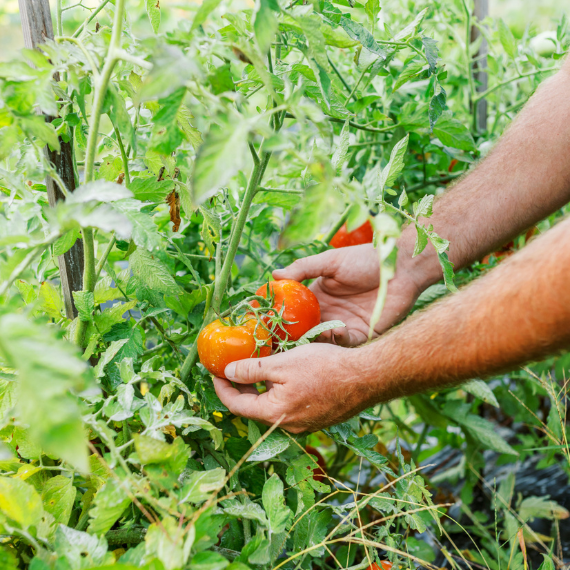
What’s more “summer” than tomatoes from the garden? Or, in Palmetto Bluff’s case–tomatoes from The Farm? We asked our newest addition to the Palmetto Bluff Club’s culinary team, Chef Beth, to share a classic summer staple from her library of recipes: Fattouche...

How did you two meet? Patti: We actually met in college but never dated. We went to Auburn University and both moved to Atlanta after graduation. He was in graduate school at Emory, and I worked as a nurse at Emory’s Children’s Hospital. Pat: Our friend grou...
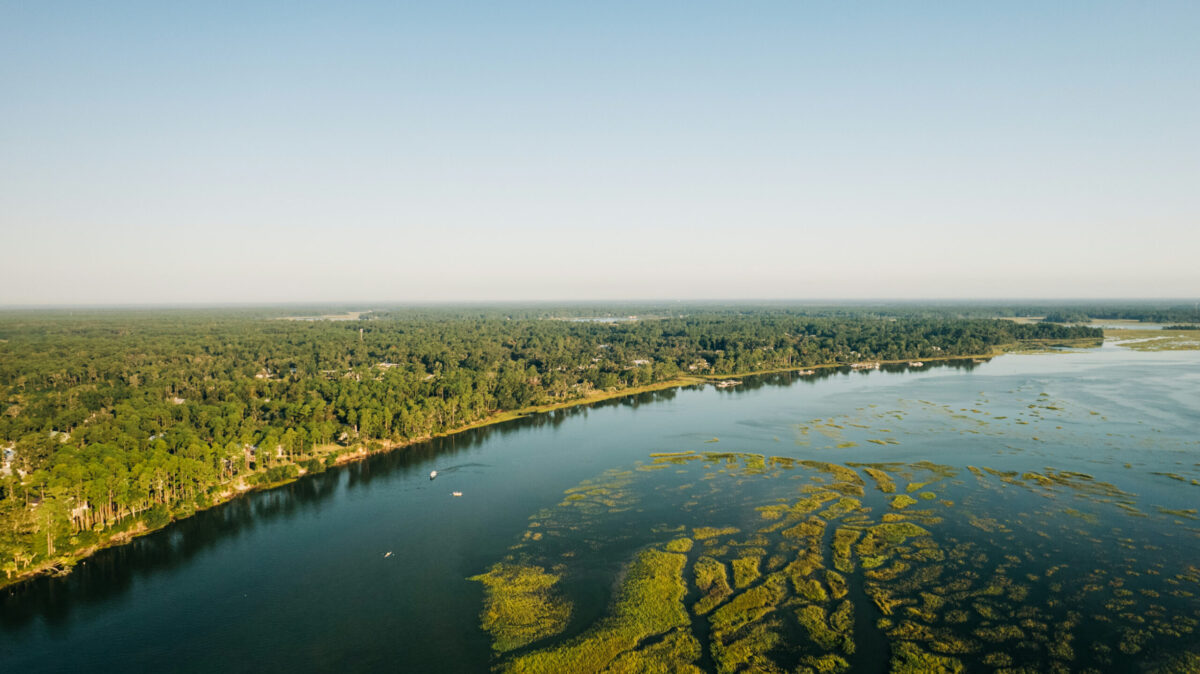
Boat The Bluff: South Carolina Waterways Imagine gliding through serene, glassy waters surrounded by lush marshlands and maritime forests. Welcome to Palmetto Bluff, South Carolina—a paradise for nature enthusiasts, water sports aficionados, and anyone seekin...
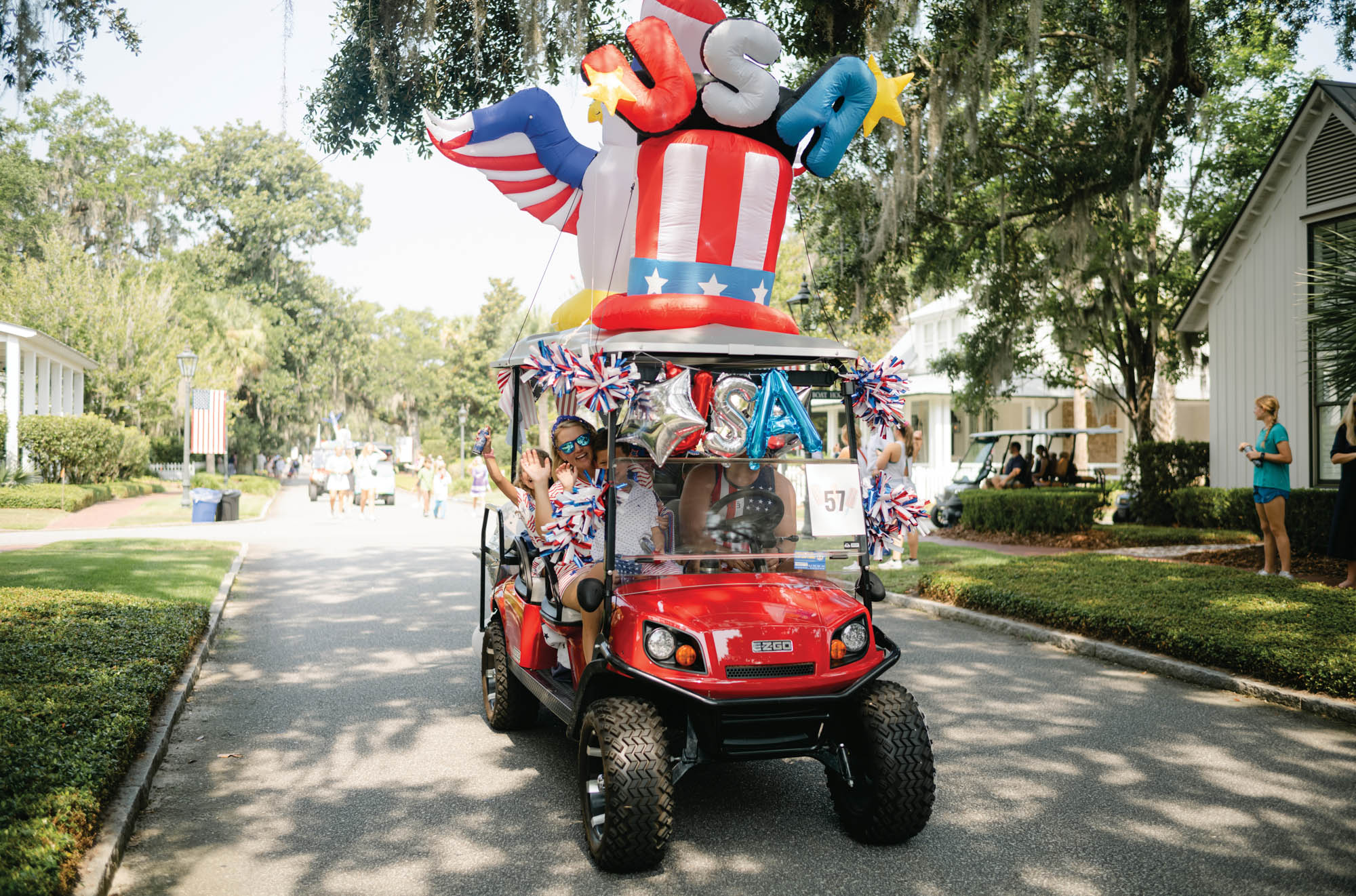
Photography by Charlotte Zacharkiw The fourth of July is the highlight of the Palmetto Bluff calendar. Follow along with the Truslow family on this magical summer day. Neal and Lauren Truslow come to Palmetto Bluff as often as they can. Their kids...
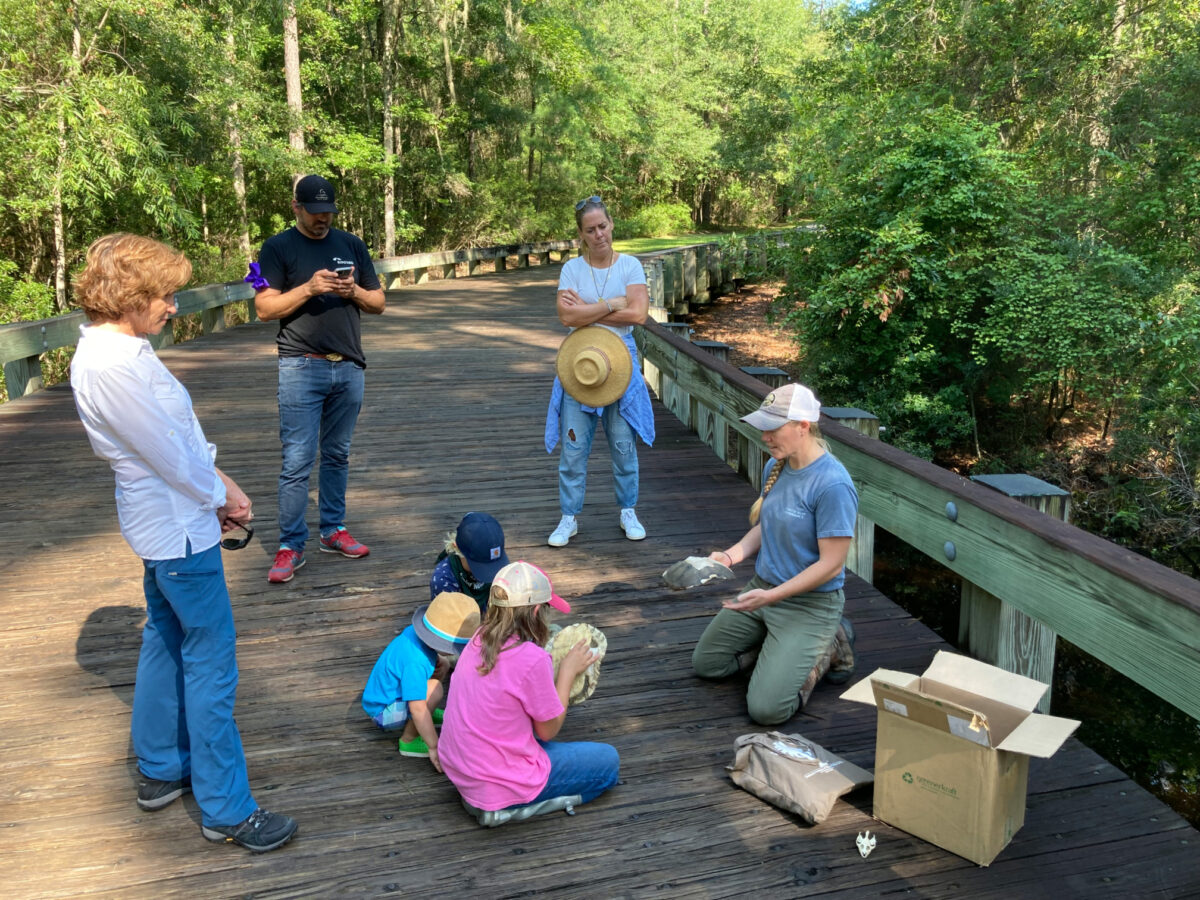
Protecting Nature and History at Palmetto Bluff In the heart of South Carolina's Lowcountry lies Palmetto Bluff, a sanctuary of natural beauty, rich history, and vibrant ecosystems. Since its establishment in 2003, the Palmetto Bluff Conservancy has been dedi...

Photography by Gately Williams Cruise Control Palmetto Bluff lies at the heart of the vast network of rivers and creeks that connect the South Carolina Lowcountry’s barrier islands. A stone’s throw from the notable cultural and historic hubs of Savannah, B...

Tracy’s Journey to Palmetto Bluff Real Estate Situated in the heart of Bluffton, South Carolina, Palmetto Bluff is more than just a community—it's a place of magic and wonder. For Tracy Schyberg, a dedicated sales executive with the Palmetto Bluff Real Estate...
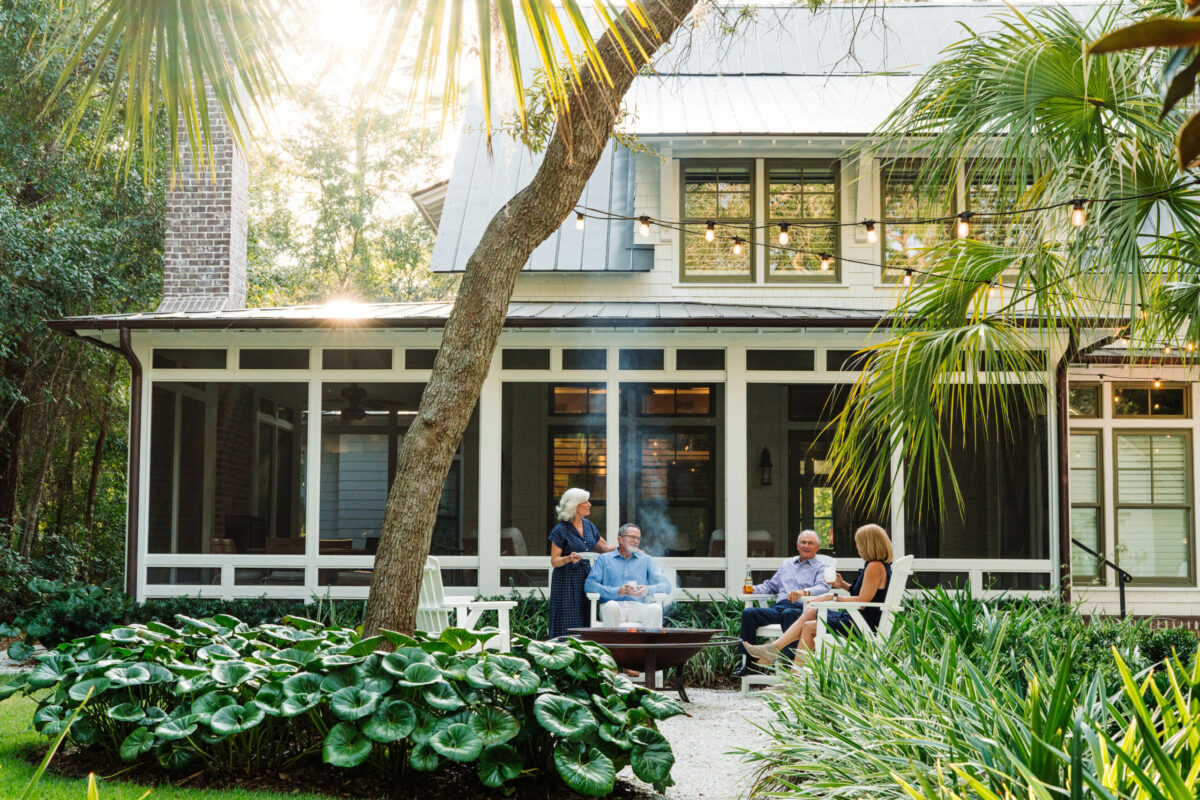
Enhancing Coastal Living With Lowcountry Landscaping Trends The Lowcountry lies along the southeastern coast of the United States, a region known for its breathtaking landscapes, rich history, and unique culture. From the charming streets of Charleston to the...
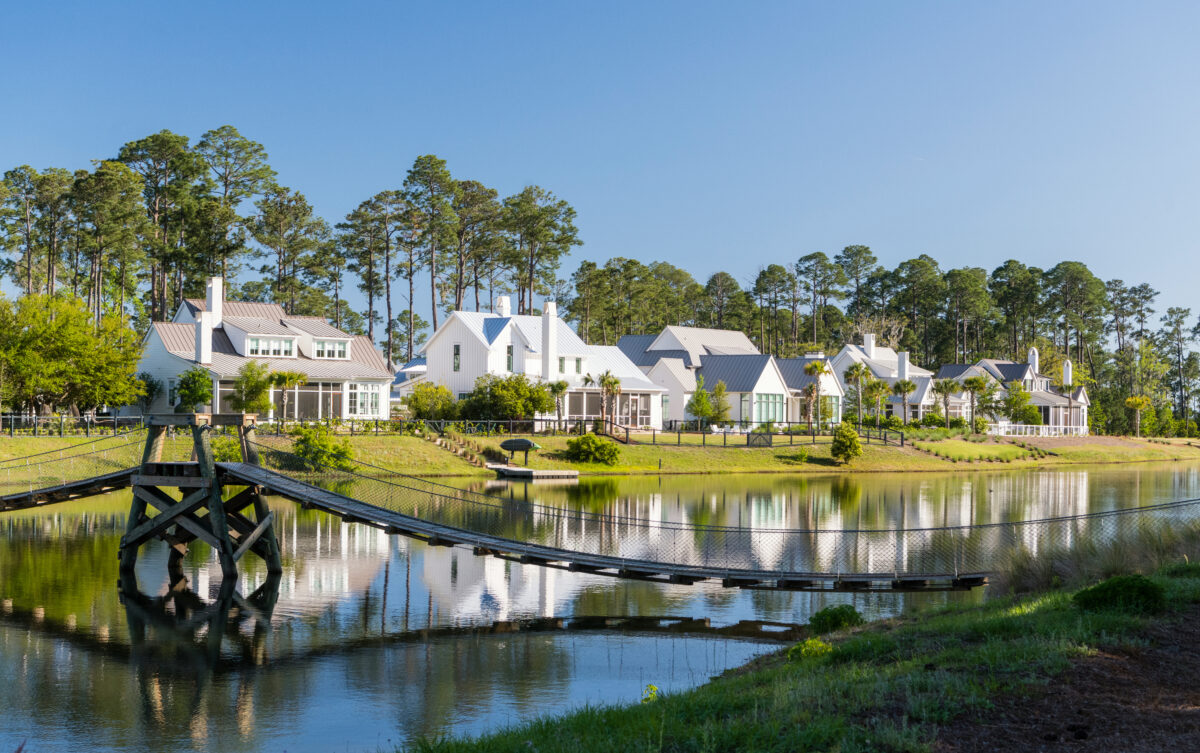
Palmetto Bluff Real Estate Available in Moreland Forest Nestled in the heart of the Lowcountry, Moreland Forest is a charming neighborhood known for its beautiful natural surroundings, Lowcountry architecture, and luxurious amenities. Within the lush forests ...
Learn about the Palmetto Bluff Conservancy and how we keep the vision of our land in place.
On land or water, there is an ever-evolving variety of activities.
We do not attempt to independently verify the currency, completeness, accuracy or authenticity of the data contained herein. All area measurements and calculations are approximate and should be independently verified. Data may be subject to transcription and transmission errors. Accordingly, the data is provided on an “as is” “as available” basis only and may not reflect all real estate activity in the market”. © [2023] REsides, Inc. All rights reserved. Certain information contained herein is derived from information, which is the licensed property of, and copyrighted by, REsides, Inc.